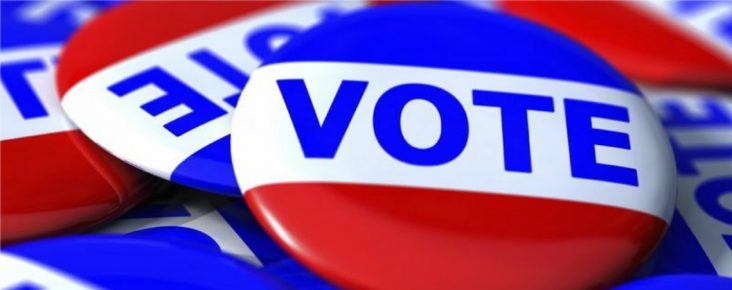Professor: A problem with polls is that voters make up their minds late in the process
by February 29, 2016 5:51 pm 617 views

Polls can’t predict the future so much as they describe the electorate, and their purpose isn’t to inform so much as to provide media outlets a chance to sell advertising, said a pollster, author and political science professor Monday.
Speaking on the subject, “Why Americans Love to Hate Polls” at the Clinton School of Public Service, Andrew Smith, a University of New Hampshire associate professor of political science, said polls are useful. They gauge political capital, describe what issues are important, and provide a means of gathering information about the concerns of voters. But they are limited for a number of reasons.
“Polls aren’t there to necessarily tell you what’s going to happen. Polls are there to hopefully understand what the electorate looks like and why the electorate is doing what it’s doing,” he said.
Smith said many voters are acting on limited information and don’t make up their minds until late – particularly in primaries, which are much harder to poll than the general election. In fact, 47% of Republican Party New Hampshire primary voters made up their minds in the last three days before voting this year.
“We’re asking people what they’re going to do when they don’t know what they’re going to do,” he said.
Smith noted that few polls are taken in many states. Talk Business & Politics and Hendrix College conducted one of the few polls taken in Arkansas, and it’s still being talked about even though it occurred in early February, which is too long ago to explain what is happening now, he said.
That reality is something Talk Business & Politics publisher and co-owner Roby Brock noted in a recent opinion piece about the primary election. The position of Talk Business is that a poll is “merely a snapshot in time,” and in no way is suggested to be a predictor of an election result. The poll in early February had Cruz at 27%, with Rubio and Trump tied at 23%.
“My gut tells me that 27-23-23% is no longer the state of the GOP field. Remember, polls are merely snapshots of where a race stands at the time of the data collection,” Brock noted. “It’s been a political eternity since Feb. 6. I won’t be surprised if any of the top 3 – Trump, Rubio or Cruz – lead the ticket in Arkansas. A runaway win by one of them would surprise.”
Smith pointed to the 2008 campaign, when pollsters badly missed the outcome of the New Hampshire primary by predicting that Barack Obama would defeat Hillary Clinton by 7%. Instead, she won by 2.5%.
The reason that happened was because so many voters, particularly women, made up their minds late, after the polls had been conducted. In a debate, Clinton was asked why voters liked Obama more, and after she responded good-naturedly that the statement hurt her feelings, Obama said in a way that could be interpreted as gruff, “You’re likable enough, Hillary, no doubt about it.” At an event the day before the primary, Clinton’s eyes welled up when questioned by a voter about how she was able to continue campaigning.
Polls, he said, combine a largely uninformed public with vague approve-disapprove questions and the fact that wording can make a large difference in the way people respond. All of that creates an illusion of public opinion. Moreover, the use of automated calls generates such a low response rate of 0.5% that respondents are “either somebody that’s really bored or somebody that really wants to let people know what’s up,” he said.
Unfortunately, members of the media often misuse polls. They focus on the horse race aspects of the campaign at the expense of the issues. They amplify inconsequential shifts in polling results. They fail to understand methodology. And they fail to recognize the difference between general elections, when voters are often certain of their choices, and primaries, when they are often uncertain.
The misuse of polls was particularly evident this year, when polls were used by the Republican Party to exclude qualified candidates from the debates “based on noise, essentially,” he said.
